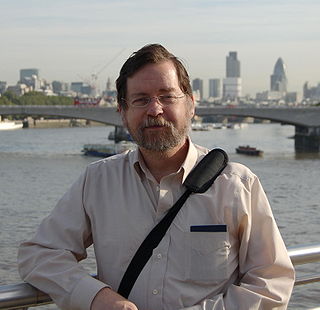A Quote by Hilary Kornblith
I do think that an understanding of contemporary work in the cognitive sciences has a profound effect on how one views the workings of the mind. It doesn't work the way we pretheoretically think it does. Such an understanding, of course, should have a large effect on one's views in philosophy of mind, but also in epistemology.
Related Quotes
Work on causal theories of knowledge - early work by Armstrong, and Dretske, and Goldman - seemed far more satisfying. As I started to see the ways in which work in the cognitive sciences could inform our understanding of central epistemological issues, my whole idea of what the philosophical enterprise is all about began to change. Quine certainly played a role here, as did Putnam's (pre-1975) work in philosophy of science, and the exciting developments that went on in that time in philosophy of mind.
The great philosophers of the 17th and 18th centuries did not think that epistemological questions floated free of questions about how the mind works. Those philosophers took a stand on all sorts of questions which nowadays we would classify as questions of psychology, and their views about psychological questions shaped their views about epistemology, as well they should have.
Neither the naked hand nor the understanding left to itself can effect much. It is by instruments and helps that the work is done, which are as much wanted for the understanding as for the hand. And as the instruments of the hand either give motion or guide it, so the instruments of the mind supply either suggestions for the understanding or cautions.
Epistemology now flourishes with various complementary approaches. This includes formal epistemology, experimental philosophy, cognitive science and psychology, including relevant brain science, and other philosophical subfields, such as metaphysics, action theory, language, and mind. It is not as though all questions of armchair, traditional epistemology are already settled conclusively, with unanimity or even consensus. We still need to reason our way together to a better view of those issues.
Mind mapping is a technique based on memory and creativity and comprehension and understanding, so when the student or a child uses the mind map, they are using their brain in the way their brain was designed to be used, and so the mind helps them in all learning and cognitive skills. It simply helps them in what the brain does naturally.
It's for scientists to lay out the data and lay out what they think, and then it's for the public to make up its own mind. We don't live in a priesthood where some small group imposes its views on other people - that's not the way that science works, and it's not the way a democratic society should work.
I do think that taking these sort of natural mind-opening and altering drugs does have an effect. Doors and windows that you didn't even know were in the house are open and you're seeing views you've never noticed before. Even though, when you come down, the world sort of goes back to the way it was, an inkling of that transformed vision and experience of the world remains. I think it's a little bit medicinal, and over time it sort of builds up a new experience of the world. That's when I think smoking pot and doing drugs is really good for you, spiritually speaking.
Realizing that our minds control our bodies while our bodies reflect our minds amounts to understanding the most fundamental aspects of ourselves. It further equals a comprehension of the relationship between our "tools." And since the mind and body are interrelated, this understanding makes it easier to see why coordinating them is a practical way of using these tools to greatest effect-a way of using the mind and body to live our lives as art.
Plantinga has written a short, 5 page summary of his views on evolution and naturalism, and it’s lucid (for Plantinga) and goes straight to his main points. The workings of the man's mind sit there naked and exposed, and all the stripped gears and misaligned cogs and broken engines of his misperception are there for easy examination. Read it, and you'll wonder how a man so confused could have acquired such a high reputation; you might even think that philosophy has been Sokaled.
It started becoming clear to me how one might have views about the nature of mind and of knowledge which are empirically informed. This way of thinking about philosophical theorizing makes sense of how philosophy might be a legitimate intellectual activity, in a way that a good deal of the armchair philosophy, I believe, cannot.
It is not a question of sitting silently, it is not a question of chanting a mantra. It is a question of understanding the subtle workings of the mind. As you understand those workings of the mind a great awareness arises in you, which is not of the mind. That awareness arises in your being, in your soul, in your consciousness.






























